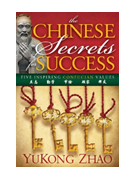In this 2016 presidential election, many ethnic groups are featured in Hillary Clinton's and Donald Trump's campaign speeches and highlighted in various media analyses. Predominantly, these are white working-class voters, white educated women, Hispanic-Americans and African-Americans. Who is absent? Once again, Asian-Americans and the issues important to them are missing.
Are Asian-Americans unimportant to America's future? Absolutely not.
According to a 2015 Nielsen report, "Asian-American buying power is nearly four times larger than that of the highly-coveted U.S. millennial segment at $200 billion, and it is larger than the entire economies of all but 18 countries worldwide." Asian-Americans also produce many scientists, engineers, innovators and entrepreneurs for this nation. Unfortunately, although we are giants in American economic and scientific arenas, Asian-Americans are considered political dwarfs, with one of the lowest voting rates among all racial groups.
No longer can Asian-Americans afford to remain at the sidelines of U.S. politics. The only way to get politicians to properly address issues we care about — the growing risk of terrorist attacks, an increase in the number of crimes against Asian-Americans and Asian businesses, skyrocketing college costs, and discriminatory admission practices by many U.S. colleges — is to vote at federal, state and local levels.
With only 4 percent registered voters in the U.S., Asian-Americans cannot make any difference in blue or red states. However, we might be able to change the country's direction if we vote actively in major battleground states such as Florida, Ohio, Pennsylvania and Michigan. In many closely contested state and local-level elections, we can have a significant impact, too.
Not only should Asian-Americans vote, but we should also vote wisely. In a 2012 Pew Research Center report, Asian-Americans were praised as the best-educated racial group in the U.S. We have all the reasons to make informed decisions. We should not be misled by biased media.
Sadly, driven by either commercial or ideological influences, some mainstream media outlets have lost their right focuses. Their content is dominated by political soap operas, such as Donald Trump' womanizing scandals or Hillary Clinton's personal character dramas. Such media rarely focus on what each candidate can do for our country and for the American people. Inevitably, less than a third of Americans trust mainstream media. With this in mind, I would advise my fellow Asian-Americans, and other Americans, to do their own research before they vote. This is the only way to make an informed and wise decision.
Ask yourself, which candidate has policies that would better serve our nation: Could his/her policies effectively defeat ISIS? Would his/her policies improve public safety? Would his/her policies help to create jobs and encourage entrepreneurship? Would his/her policies help improve education? Would he/she treat all racial groups the same, and discourage racial divisiveness?
When evaluating policies, assess their purpose as well as their effectiveness. For example, helping the poor is a great cause. But the real test should be not by how much money is handed out, but by the ability to help the poor to get out of poverty and to climb up the social ladder.
In addition to better policies, assess political candidates' ability to implement them. Too often we elect people who are great public speakers and debaters. However, when it comes to making the right decisions and implementing the right policies, they sometimes fail miserably. In today's media-driven elections, we need to resist the temptation to jump on board with the best speaker. Visionary leaders and capable doers are the ones who can truly advance our nation.
Furthermore, you will want to balance the interests of your generation with future generations. As Confucius wisely said 2,500 years ago, good leaders are the ones who can save for future generations. The ability to manage money, not to squander wealth at the cost of our children, should be an important criterion.
Finally, consider what effect both candidates' policies would have on you and your family. Which candidate would improve your job opportunities, increase your disposable income, and strengthen your social safety net? Most important, who will enhance your children's future?
After thoughtfully thinking through these many factors, you can wisely cast a vote in this critical election.
(Note: Yukong Zhao, a Chinese-American author, is the president of Asian American Coalition for Education. He recently founded yukongpost.com to promote critical thinking and balanced perspectives. This article was first published by Orlando Sentinel on October 23, 2016.)



